Human Dignity in a Technological World
It’s hardly controversial to say that our culture has long since abandoned its Judeo-Christian roots. On key social issues such as contraception, abortion, and divorce, our civilization could scarcely be more out of step with the principles that guided the Christian West for countless centuries.
And yet, it seems that we have not yet reached the full extremes of this experiment in rebellion. With every day, it seems as if the developed world is increasing the momentum of its race towards something that is eerily akin to the society described in Aldous Huxley’s Brave New World – a dystopian technocracy, in which that which is fundamentally human is superseded by an ever-greater reliance upon and worship of technology.
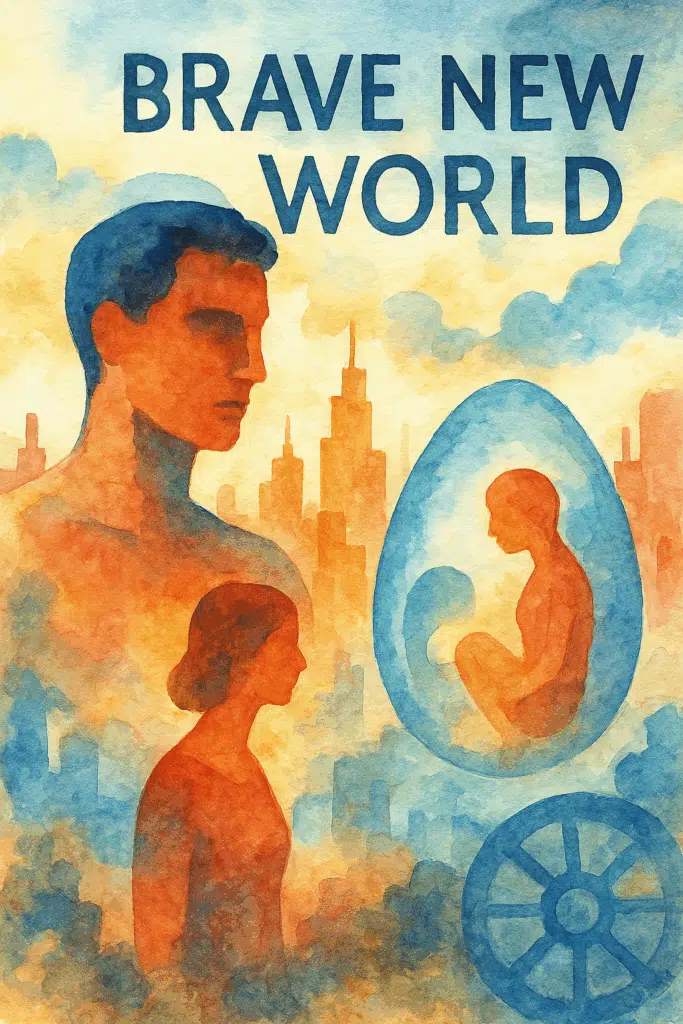
The Brave New World reference feels especially apt this week, as articles about the development of a “pregnancy robot” circulated widely on the Internet. In Huxley’s book, the business of procreation is outsourced to a central government authority, which creates and births human children in a lab. According to the articles published this week, a company in China will soon make commercially available a robot that is capable of carrying a human fetus to term. The articles quote the supposed owner of the company saying, “Some people don’t want to get married but still want a ‘wife’; some don’t want to be pregnant but still want a child.”
As it turns out, the story was fake. And yet, it’s not difficult to understand why major publications, such as Newsweek, fell for the story. We have long since entered the world of science fiction, in which dehumanizing technologies have been introduced into the most intimate and sacred areas of human life.
It is extremely common nowadays, for instance, for a couple that is struggling to conceive to head to a lab, where sperm and egg are united in a petri dish (in vitro fertilization), and then the fertilized egg implanted in the womb of the mother. And indeed, even the need to unite the human embryo with his or her mother has long been treated as dispensable. Wealthy couples, who prefer not to burden the body of the mother with the difficulties of pregnancy, can simply outsource all such difficulties to a paid surrogate.
To me, it seems a very small step from using a human surrogate to a pregnancy robot. One might even argue that this is more “humane,” given the self-evident (or what should be the self-evident) dehumanization involved in treating a woman (often from an impoverished situation) as a mere incubator for somebody else’s child.
The New Religion of Technology
Meanwhile, the AI revolution seems to be rapidly mainstreaming a kind of futuristic transhumanism that was once confined to the most revolutionary corners of Silicone Valley. Well-heeled corporations such as Facebook, Google, Apple, and OpenAI, are openly engaged in a race to create so-called “artificial general intelligence,” or even super-intelligence, which could eradicate whole fields of human endeavor. With the release of these tools into the public square, many people are quickly becoming accustomed to dialoguing with machines, often about profoundly personal and sensitive issues.

The long-term goal, however, is not just to create super-intelligent machines, but to merge human beings with these machines, creating a new breed of super-humans. The first step down that road is the development of virtual reality headsets, which will enable a person to enter into and live within an artificial world that can be tailored to a person’s interests or tastes. But the long-term goal is to completely merge man and machine through brain implants that will permit a human to link up to the Internet, or even to communicate telepathically with other humans.
All of these developments can be viewed through the common lens of the unconstrained exercise of power. Modern man does not admit of any limits on his power, and sees it fit to mold even his own body as he sees fit: up to and including the mutilation of his body to pretend to be the opposite, or some new, undefined “gender.”
Wisdom vs. Power
In the face of these developments, the Church stands aloof, far less impressed by the technological achievements (which in many cases are unquestionably great) than it is by the potential ethical and anthropological consequences of this technological tidal wave.
It is astonishing to think that many of the people leading the revolution that is rapidly transforming society are twenty-something programmers. The degree of their ingenuity – indeed brilliance – is often matched only by the degree of their ignorance – indeed indifference –to the broader consequences of the machines that they are making.
Many of this new breed of technological Prometheus have exerted their intellectual gifts to the utmost, from the earliest ages, towards the goal of creating the most powerful machines ever devised by human beings. But, unlike the generations of scientific revolutionaries of the 18th, 19th, and even 20th centuries, they have had scarcely any exposure to or training in the humanities—in history, philosophy, literature or theology.
The new technologists are laser-focused on cracking difficult technological problems as quickly as possible, so that they can reap some of the immense wealth and prestige that awaits those who first prevail. This laser-focus comes at the expense of any considered reflection on what impact the technologies they are creating and releasing to the public might have on the world—how they might either improve, or degrade, human nature.
Their attitude is summed up perfectly by the fictional scientist, Dr. Ian Malcolm, in the movie Jurassic Park. Once informed that the scientists at the park have successfully resurrected the dinosaurs, Malcolm quips, “Your scientists were so preoccupied with whether they could that they didn’t stop to think if they should.”
Man’s High Dignity in Christian Teaching
The Church cannot claim to be expert in all the details of how modern machines or technologies are developed or how they function. However, what She does claim to be an expert in is in human beings: what they are, what they desire at their deepest levels, and (crucially) where they are most broken and in need of healing.
The Church has a long memory. She has survived the rise and fall of empires. She has witnessed numerous technological revolutions. She has seen plagues, wars, and the exploration of new continents. To those who are swept up in the enthusiasm of the moment, She must seem frustratingly ancient, gloomy, obstructive and irrelevant.
And yet, as we learned so dramatically in the 20th century, the world ignores the Church’s pronouncement at its peril. To many in the late 19th century, Communism seemed like a welcome light, promising a fresh new age of liberty and equality. No longer would the world suffer under extreme economic inequalities, or the tyranny of outmoded political systems. A youthful age was about to dawn. And the first of the old things that needed to be swept away by this revolution would have to be the Church, with her finger wagging and sclerotic teachings.
We all know how that ended.
Original Sin and Human Brokenness
As this new technological and moral revolution sweeps the world, the Church continues to stand aloof. While the world races forwards with reckless abandon, She continues to meditate upon and remind the world of the truths that are eternal: that remain true regardless of whether it is the 1st or the 21st century.
Technology, science, power, the pursuit of money, efficiency, etc. are not adequate means to the realization of man’s dignity. Also, these are not adequate for addressing human dilemmas impacting society and culture. Ultimately, to make the world more human, man must understand his nature.
In its teaching on human nature, the Church balances two apparently contradictory, but ultimately deeply complementary truths. The first is that human nature is deeply wounded. And the second is that human nature enjoys a dignity that far surpasses that of any other creature.
In relation to the first, it is curious that the modern world often accuses the Church of having an excessively pessimistic anthropology. The teaching on Original Sin, says many a modern atheist, unfairly treats human beings as broken. And yet, as GK Chesterton famously pointed out in Orthodoxy, the doctrine of Original Sin is the only doctrine that you can prove to be true simply by opening the morning newspaper. The litany of human greed and violence that one finds documented in those pages ought to be enough to demonstrate, beyond any reasonable doubt, that something is very wrong, indeed, with our nature.
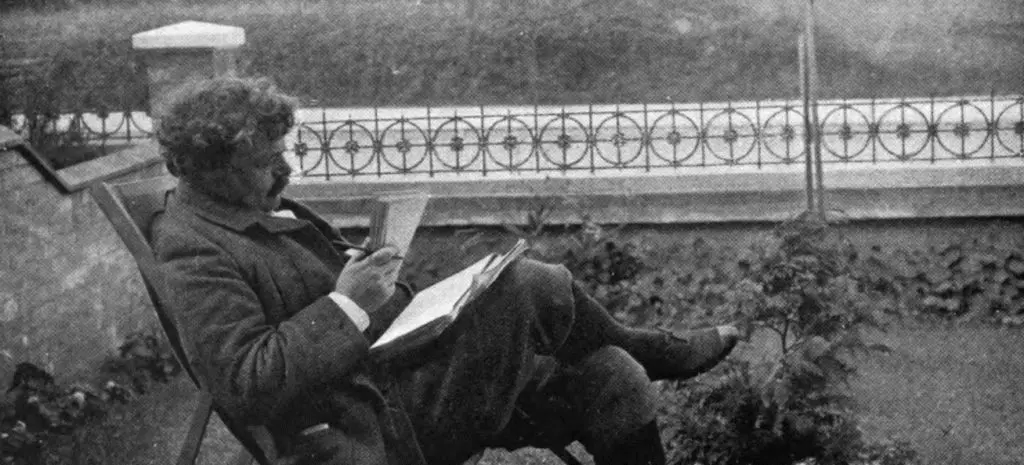
That human persons have suffered the Fall is overwhelmingly evident. Because of the Fall, man has suffered a privation of Grace and thereby has incurred the defect of Original Sin by his original disobedience. Our desires are corrupted, no longer oriented to the Supreme Good but left anxiously pursuing carnal lusts.
The Catholic Path to Human Fulfillment
The Church insistently reminds us that we are spiritually darkened (Rom 1:21) and thus cannot unquestioningly trust our own passions or intellects. As St. Paul reminds us, “The sinful mind is hostile to God. It does not submit to God’s law, nor can it do so” (Rom 8:7). When man becomes the measure of all things, God is replaced by the most pernicious and destructive idols. When man rejects his own humanity, in principle, he rejects God in whose image he was made (Gen 1:27).
The Church insists that the deep brokenness and woundedness of human nature is a datum that must be taken into account. To reject this datum would be to begin from a catastrophically false first premise. And as St. Thomas Aquinas famously said, when you begin with a small error it leads to a large error in the end (cf. De Ente et Essentia). What if, however, we start with a big error? How great will the consequences be?
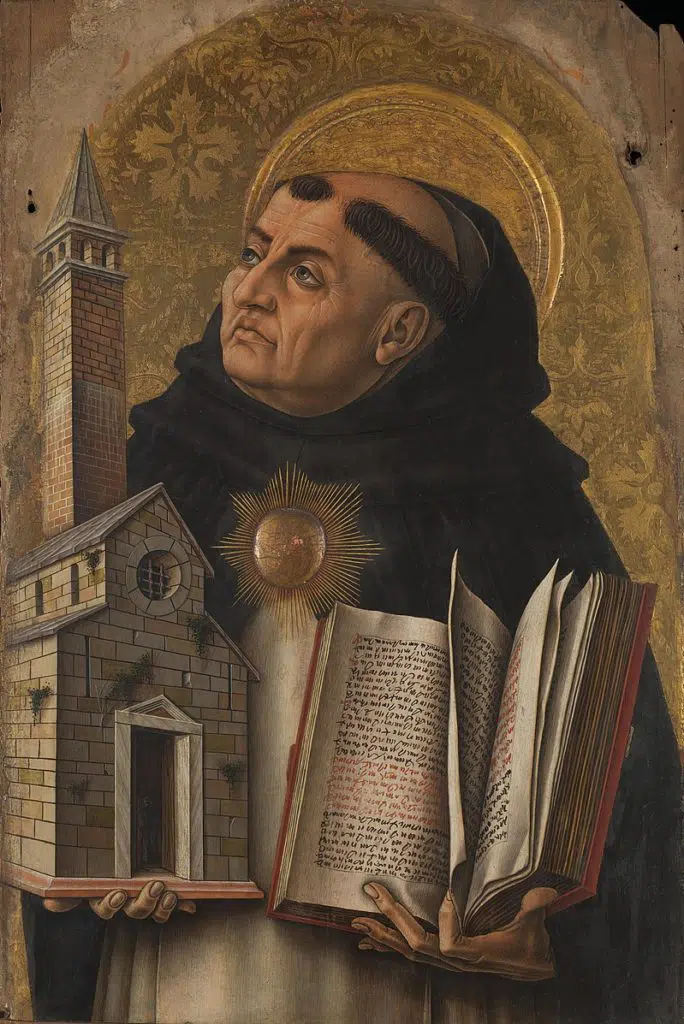
We live in a time when modern teachers and philosophers deny that there was any Fall, and that man can perfect himself by his own efforts. But what are the consequences of this teaching? We need only look to the Gulags of communist Russia, the concentration camps of Nazi Germany, or the dystopian family planning policies of Communist China for the answer to that question.
However, an equally (and indeed, perhaps even more) important truth about human nature is the great dignity of that nature. As the Church teaches, human beings are made in the image and the likeness of God Himself (Gen 1:27, Catechism of the Catholic Church, no. 1701). And as children of God, we possess an inherent dignity that is independent of any qualities, characteristics or accomplishments that we may have.
As suggested above, to some these two data points (our deep brokenness and our high dignity) seem contradictory. However, they are better thought of as paradoxical, i.e. as only seemingly contradictory, but in fact having a deeper underlying unity.
Human Fulfillment Cannot Be Engineered
This paradox is enacted around us every single day in a million ways: one man sacrifices his life rescuing a total stranger from drowning, while another man murders his own wife and children. Man is capable of greatness but is ever at risk of sinking to a level that is lower than the beasts. Original Sin explains our proclivity to bestial brutality, while our being made in the image and likeness of God explains our capacity for heroic goodness.
The first (our brokenness) is why the Church teaches the absolute necessity of repentance, self-restraint, objective moral truth, and wisdom. There are some things that we can do, but which we should not do, because doing so will empower and unleash the brokenness of human nature. We should not tempt ourselves by creating tools that tempt us towards the misuse of our power.
That is the negative side of the coin. However, the flipside is equally important. The decisions we make must also take into account the great dignity of human nature. Everything in society and culture must be directed towards developing and making evident the dignity of the human person.

Church Teaching on Technology
God has bestowed a unique goodness upon man, making him capable of knowing his own end, and of freely moving himself to that end, which is God. The Church reminds us that there is an objective and absolute truth about human beings that we can discover if we search for truth. Without this truth there is no foundation for the dispositions that foster openness to a deeper understanding of the meaning of life.
As The Decree on Religious Liberty, says:
It is in accordance with their dignity as persons—that is, beings endowed with reason and free will and therefore privileged to bear personal responsibility—that all men should be at once impelled by nature and also bound by a moral obligation to seek the truth, especially religious truth. They are also bound to adhere to the truth, once it is known, and to order their whole lives in accord with the demands of truth (Dignitatis humanae, no. 2).
Our understanding of the human person has powerful ramifications for our moral, spiritual and civic life, because who we are is inseparable from how we ought to live. In other words, how God calls us to act (“Keep my Commandments” Jn 14:15) corresponds to the human nature He bestowed on us.
God’s law is genuinely good for us, because it takes into account our human nature, as it really is. It calls us to lofty heights of holiness, but acknowledges the immense difficulties of doing so, because of our brokenness.
Catholic Response to Artificial Intelligence
What the Church teaches us is that living in accord with God’s design for us brings true satisfaction, even in the midst of life’s unknowns, challenges, and disappointments. However, to live in contradiction to God’s design and law can leave human beings unsatisfied, because they are living in opposition to how God created us to live.
Will creating super-intelligent artificial intelligence fulfill man? Will conquering nature speak to the deepest yearnings of our hearts? Will casting off the biological “restraints” that nature has given to us make us truly free? Will treating our nature and person as infinitely malleable, according to our whims and whatever is technologically possible, produce the happiness for which we yearn?

The self-evident misery and grasping desperation of many of those who worship at the altars of technology, power and wealth does not produce confidence that the paths we are treading are the right paths. To find authentic fulfillment we must look to the deepest truths about human nature. And to find these, we must look to those “old-fashioned” (but really timeless) teachings of the Church about human nature. Only in this way can we successfully navigate this confusing time of unprecedented change and turmoil.
Human Life International
As president of Human Life International, Fr. Boquet is a leading expert on the international pro-life and family movement, having journeyed to nearly 90 countries on pro-life missions over the last decade. Father Boquet works with pro-life and family leaders in 116 counties that partner with HLI to proclaim and advance the Gospel of Life. Read his full bio here.




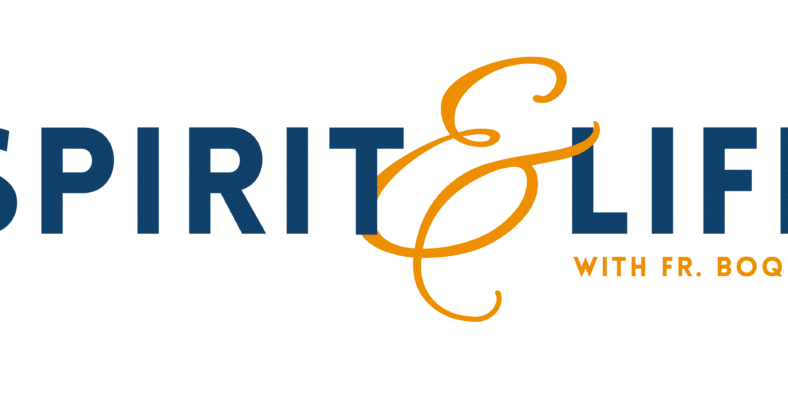
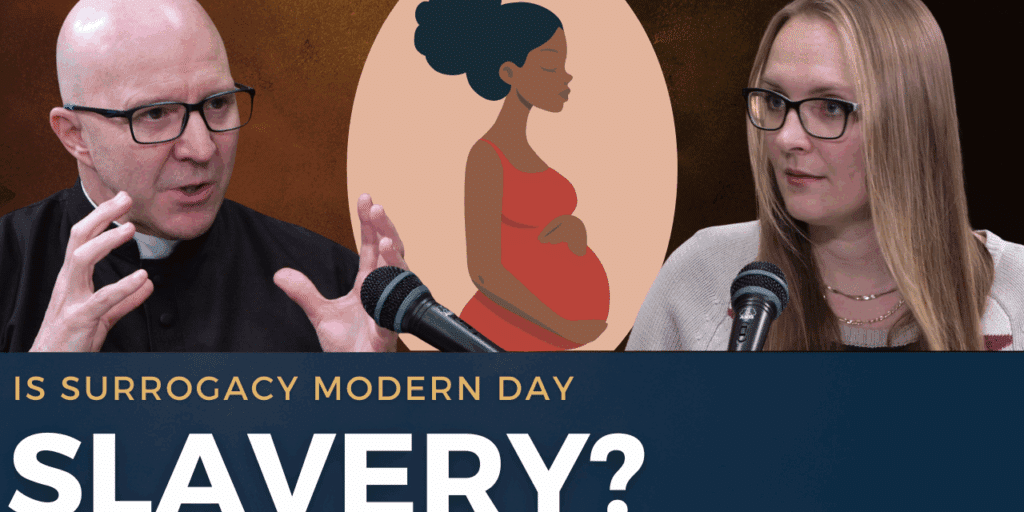
🙏